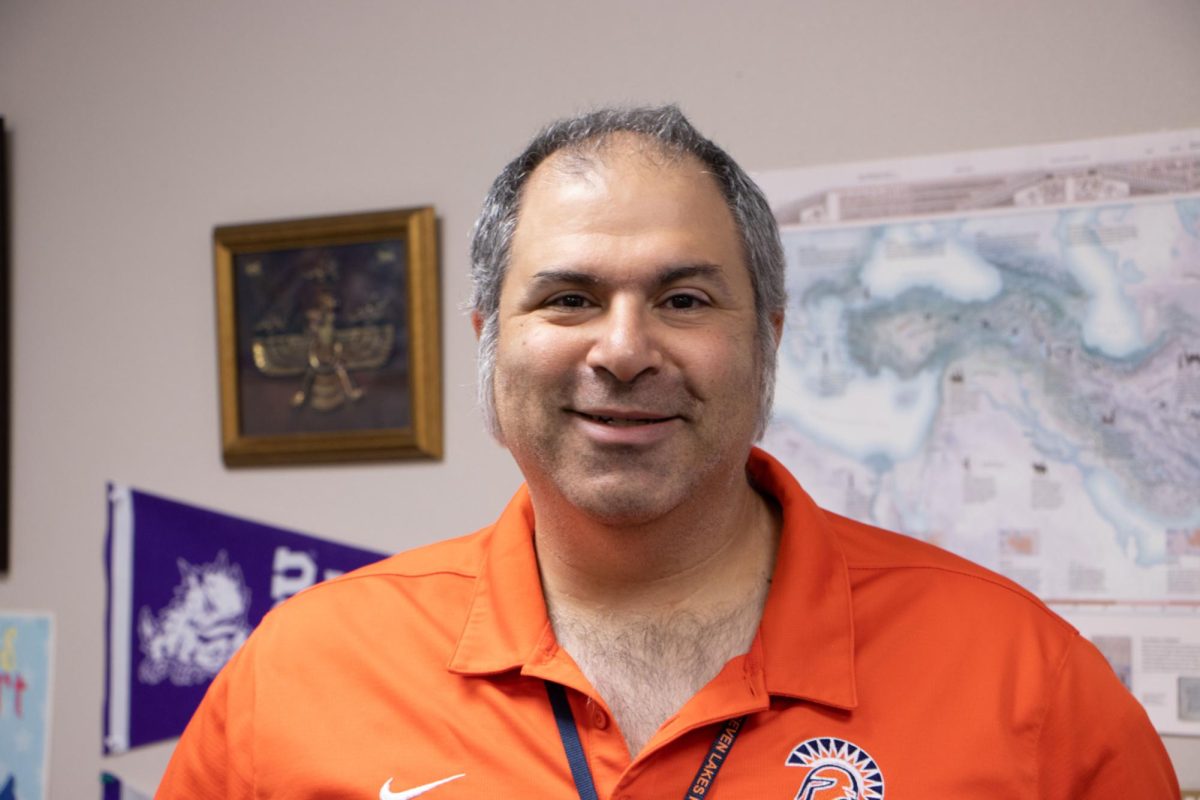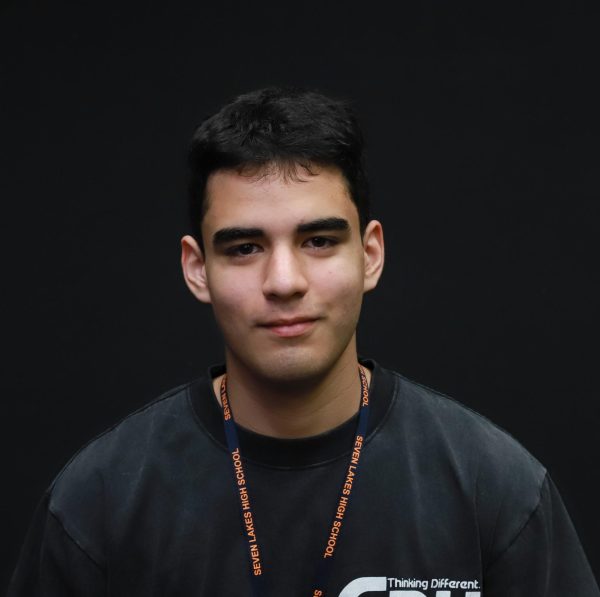What advice would you give to any high school student managing their finances?
Spend less than you earn and save a lot of money. A great advantage for most students is that parents usually don’t ask them to contribute rent, fees, or utility bills. So, most high school students’ expenses are minimal because they’re living at home. Their expenses should be close to zero, so why can’t they save all of their money? That’s unrealistic and not very human. All you need to do is take 20% of your money and spend it on something fun. Go buy a PS5 game or get that iPhone 16. Do whatever you want with 20, 30, or 40 percent of your money, but save the rest. How? Go to a bank and open a savings account. You might need to take your mom, dad, or guardian because they might understand the process of opening a savings account better. The bank will pay you very close to zero interest, so you’re not saving for the interest. You’re saving just to accumulate money. Remember, prom is coming up in 5, 6, or 7 months, and that’s expensive. Even if you go in a group of six or seven, you have to pay for the limousine, the tux, the dress, the tickets, and the dinner. All those typical prom expenses can add up. For an average high school student at Seven Lakes, it might be around $700. So, start saving now, and you’ll be prepared for those big expenses when they come up.
Do you think that having only a checking account is fine, or do you need to have a mandatory savings account?
No, either checking or savings is fine. A checking account is useful if you’re going to take out your debit card and use it. A checking account is usually what you open if you want a place for money to be deposited and then withdrawn, like if you have an automatic payment for your car on the 15th of every month. But since we’re talking about high school students who probably don’t have a lot of expenses like that, I’d recommend a savings account. Then, take the 40% of your paycheck that you’re going to spend and keep it as cash. So, you keep, say, $300 of cash at home, that’s not a huge amount, and put the rest in your savings account.
Do you think students or high school students should get into investing, or do you think they’re too young for that?
No, the younger, the better, as long as it’s allowable by law. At age 18, investing in the stock market is probably legal. The issue with the stock market is it goes up and down on a daily, hourly basis. Right now, the stock market is kind of mixed. So basically, the stock market right now is up a little bit, but for the past month, it took a beating. It went down about 7% or 8% in a month. So, any money that you put in the stock market, in theory, should be money that you don’t need for five years. In five years, the market could go down and stay down. Money that you put in the stock market should probably be for a long-term expense. It should be for retirement or a down payment on a house that you’re going to use in 10 or 15 years. These are opinions, these are thoughts. You know, opinions are like noses. Everyone has one, and they all smell. But that’s my take.
Do you think having a solid understanding of economics would help people live a better life in the future? Or do you think it’s not that necessary?
I think having a solid understanding of economics is necessary. It helps people to navigate daily lives and enables people to make better decisions. Some of it involves critical thinking and critical thinking skills. It also helps citizens to be more informed when they cast their votes. I think every citizen aged 18 or over should vote. Young people don’t vote at high rates like older folks. The more people know, the more likely they are to vote. I think voter participation is great. Suppose you have an understanding of economics. In that case, when a candidate says something, you can understand whether what they’re saying is baloney or has economic truth to it.
What specific things from economics should people mostly understand when they’re looking at decisions, for example, political or situational?
Maybe how taxes and spending priorities are discussed. In economics, we know that spending on capital like machinery or infrastructure, like roads, tends to increase economic growth. Economics teaches us that investments in education yield economic growth. Economics also tells us about progressive taxes, like income tax, versus regressive taxes, like sales tax. If you have a basic high school background in economics, you should know what they’re talking about.
When did you start teaching economics and do you enjoy teaching it?
When I started teaching economics, I was interested in it because teachers could use real-world examples relatively easily. I had been teaching geography and world history at the time, and sometimes it’s difficult to use real-world examples to explain why we should study certain historical periods, like the Gilded Age. I can tell you how it relates to today, but it can be a little abstract. One part of effective teaching is helping students make connections between what they’re learning in the classroom and the real world. We can do that in economics. For example, gasoline prices are going down for a couple of reasons: the supply is increasing because America is drilling more oil than ever before, more than Saudi Arabia and Russia. At the same time, a huge market like China is not demanding as much, so the supply is increasing while demand is decreasing. Understanding these things helps us avoid conspiracy theories. I like economics because I can make it relevant.
You mentioned you had an experience like grading an AP test. How’s that? Where do you go, and how did you get to do it?
Before 2020, we would fly to Cincinnati, and they would put us in a hotel room. We’d go to a big convention center down the road, less than half a mile walk. For a day, we would grade papers and calibrate to the rubric. They know what the answers are, and we would grade until we hit the answer consistently. We did a lot of training for most of that first day. It’s like six or seven days of grading, eight hours a day: two hours of grading, 15-minute break, two hours of grading, lunch hour, two hours of grading, 15-minute break, two hours of grading, dinner. At the end of the day, I’m exhausted, go back to the hotel room, fall fast asleep, and wake up at about five the next day. I only graded one question, and the AP test has three questions, so you only graded one question. For all the time, I was grading question two, which is one of the shortest questions. I graded something like 3,500 question twos. In 2020, it was online. We logged on to the computer and did all that training on the computer.
Are you still online this year?
We had the choice of going back to Cincinnati in person or online, and I stayed online this year. It’s in Cleveland next year, and I’ve never been to Cleveland. I think it might be a cool town to explore. You can see a Guardians baseball game and a new city. So, I’ll probably go in person. The excellent thing about being in person is seeing some familiar faces. They have a happy hour and a reception where you can meet people. There’s usually a hotshot economist or someone from the Federal Reserve talking, and you can sharpen your economic skills a bit.
How did you start teaching AP Macroeconomics?
I was forced. I was at Lamar Consolidated. I love teaching AP Macro but I was forced to do it. It was one of the best things that’s ever happened in my career. Teaching AP Macro and coming to Seven Lakes High School are two of the greatest things that have happened in my 26 years of teaching. The AP Macro teacher at Lamar Consolidated High School left, so the principal and assistant principal came to us in the Social Studies department and asked, “Who wants to teach AP Macro?” I didn’t volunteer because I had a perfect sweet spot teaching honors economics. No one else wanted it either. So, she came back to me and said, “Hey, you’re going to teach AP Macro.” I replied, “I don’t want to teach AP Macro.” She said, “If you want to teach next year at Lamar Consolidated High School, you’re going to teach AP Macro.” I said, “Yes, ma’am, thank you.” That first semester was tough, but the second semester was amazing. I learned a lot I didn’t know as a teacher. I taught AP Macro there for one year, my kids did well on the AP test, and then I came here. There was an opening at Seven Lakes High School for an AP Macro teacher, and I was lucky and skilled enough to get the job.
How is it to teach the same thing to different sets of students from one semester to the next?
There have been times where I had, like, four sections of AP, so I’d say the same thing four times a day, and then in the spring, say the same thing another four times a day. So, how do I do it? I try to systematize the content, but I also try to have a little fun and make it not so monotonous. Eventually, because most of the semester we’ve done this lecture, you know, have you guys do some of the work. But I’m also just kind of decent at just sometimes you just gotta do what you do. Teaching seniors is a little bit less monotonous than other classifications because seniors tend to ask more questions and have more experience, so we can have better discussions. That kind of breaks up the day. It’s so important to be consistent, class to class, semester to semester. My students mean a lot to me, and I don’t want to let them down, so you just do what you gotta do. Many teachers face saying the same thing five, or six times a day, and then it’s repeated.
Last Remarks:
Save more, spend less than what you make. Saving is crucial for personal financial stability, whether it’s for graduate school, a house, or a business. Education is equally important. The old data still holds. The more education you have, the higher your income tends to be, and the lower your chances of being unemployed. Investing in yourself through education, whether as a welder, doctor, mechanic, teacher, or lawyer, is one of the best investments you can make. So, spend less than you make, save diligently, and pursue your education to secure a better future.



